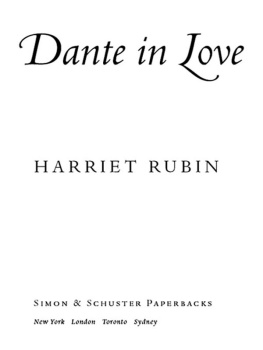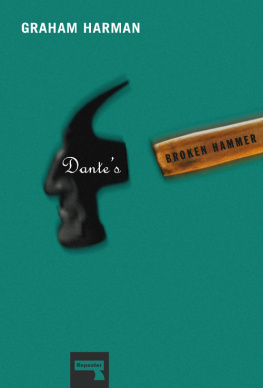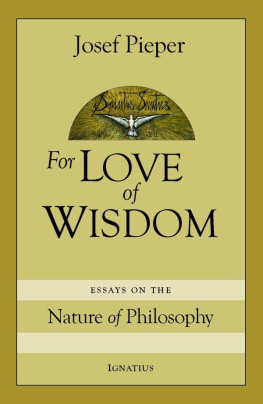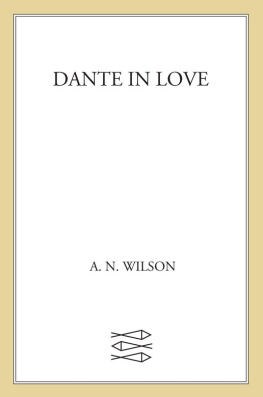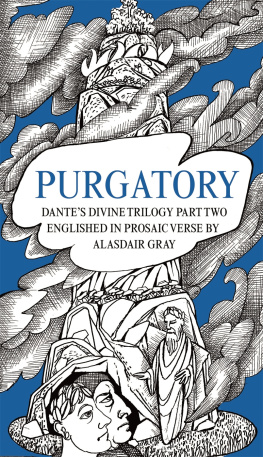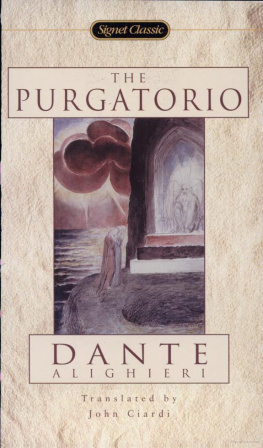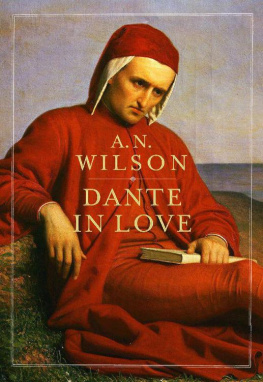Dantes Philosophical Life
Dantes Philosophical Life
Politics and Human Wisdom
in Purgatorio

Paul Stern

Copyright 2018 University of Pennsylvania Press
All rights reserved. Except for brief quotations used for
purposes of review or scholarly citation, none of this book
may be reproduced in any form by any means without
written permission from the publisher.
Published by
University of Pennsylvania Press
Philadelphia, Pennsylvania 19104-4112
www.upenn.edu/pennpress
Printed in the United States of America on acid-free paper
1 3 5 7 9 10 8 6 4 2
Library of Congress Cataloging-in-Publication Control
Number: 2017056086
ISBN 978-0-8122-5011-4
To Lisa
And if this is so, we will say that those among the living who have and will have available to them the things stated are blessedbut blessed human beings.
Aristotle Nicomachean Ethics 1101a1921
Hence choice is either intellect marked by a certain longing or longing marked by thinking and a starting point of this sort is a human being.
Aristotle Nicomachean Ethics 1139b46
The prudence of a king is that unequaled seeing at which the arrow of my intention strikes.
Dante, Paradiso XIII. 1045
CONTENTS

Chapter 2. What Good Would Climbing Do?: The Rationale and Impetus for the Pursuit of Self-Knowledge
(Cantos IIX)
Chapter 3. To a Better Nature You Lie Subject: The Political Character of Humanity and Nature
(Cantos XXVII)
Chapter 4. Disrobing the Siren: The Zealous Pursuit of Clarity
(Cantos XVIIXIX)
Chapter 5. When Love Breathes Within Me: The Desirability of Desire
(Cantos XIXXXVII)
Chapter 6. The Nest for Human Nature: Earthly Paradise and the Happiness in This Life
(Cantos XXVIIIXXXIII)

Politics, Poetry,
and Philosophy in Purgatorio
I came to Dantes Commedia already well into my career. Rather, it seeks to account for the philosophic importance of politics in the poem, to explain why in an intellectual milieu shaped by Christianity and Neoplatonism, a religion and a philosophic school united in their diminishment of politics, the political realm should occupy such a significant place in the Commedias vision. My thesis is that the poems political surface provides the key to its depths. More specifically, I argue that the prominence and meaning Dante accords politics are crucial to the vindication of rational inquiry into the human good, which, I also argue, is his poems intent.
American Dante scholarship of the past fifty years maintains a different view. With a few notable exceptions, this scholarship understands the poems intent as religious. For Singleton, the poems purpose as versified Christian doctrine is plain.
Yet, precisely the Christian character that makes Singletons characterization
Singletons position could be vindicated were the status and meaning politics has in Purgatorio altered in Paradiso. But Dantes distinctive political concerns intrude even in heaven, disturbing its serenity in some particularly prominent locations (e.g., Par. VI. 1142, X. 10914, XIII. 4649, 8896, XVI. 34154, XVII. 13142, XXX. 12748). There, too, Dante cares deeply about politics, and his preferred brand still takes its bearings from models that clash with Christian doctrine. The question of the relationship between his religious vision and his political concerns persists beyond the poems conclusion.
The difficulty has not gone unnoticed. Objections to the view Singleton summarizes, although never in the majority, are not all of recent vintage. And, in 1335, the Roman province of the Dominicans forbade study of the poem. Their fear is not unfounded. One of its sources is the friction between Dantes treatment of politics, on the one hand, and established Christian doctrine, on the other, especially given the works specific poetic form.
As Dantes treatment of his poetic predecessors in Purgatorio indicates, poetry, notwithstanding critiques such as Aquinass, did have a place in Dantes world.
But Calliope, the banished Muse of epic poetry, was particularly unwelcome in Dantes pervasively Christian world (I. 810). As Robert Hollander writes, It is the sin of the poet, in Augustinian-Aquinian eyes, to claim for secular literature a license for a higher form of truth-telling that is explicitly reserved to the Bible and to the writings of its anointed interpreters. Nevertheless, Dantes epic provides just such a justificatory vision, and Dante insists throughout on its veracity.
As evident in his poems novel hero, Dante adopts the epic form to new circumstances. Still, the present point is that, like Homer, the sovereign poet, to whom the Muses gave more milk than ever to any other, and like Virgil, Dantes sweetest father, he too undertakes to shape a peoples way of life (Inf. IV. 88; XXII. 1012, XXX. 50). Dantes poem, as do theirs, conveys a notion of good that informs the entire community, intertwining ethics and politics in a shared view of a choiceworthy life. In the epic manner, the Commedia makes this view compelling through vivid portrayals of the hero who founds the community and of the divinity that substantiates its goodness. Platos Socrates vouches for this link between epic poetry and great politics when, to found Kallipolis, he reconceives Homers gods and heroes, engaging in what he calls theology.
Dantes definition of poetryverbal invention composed according to the rules of rhetoric and musicindicates why poetry is such an effective tool with which to undertake a reformation for the whole of humanity on earth, as John Scott characterizes Dantes political project (DVE II. iv. 23). As the multitude of Dantes contemporary readers attests, his epic poetry retains its compelling power.
In choosing to write an epic, and in taking Virgil as his initial guide, Dante signals his seriousness about effecting a far-reaching political change. Every proposal for such change presupposes a critique of the existing order, the more far-reaching the proposed change, the more fundamental the critique. Underlying all such critiques is a vision of how we ought to live together, some standard of justice that is not being met. Furthermore, every standard of justice appeals to a conception of a well-lived life. To answer the question about the elevation of politics by Dante requires therefore that we grasp his notion of such a life.
In this regard, it is useful to note that Augustine, for one, would find Dantes aim misguided and, most pertinent to the present purpose, Dantes seriousness misplaced. The divergence between Augustine and Dante about politics reflects, however, a still deeper divide, a difference that concerns, ultimately, the meaning of philosophy. To be more specific, it is Dantes understanding of philosophy, decisively distinct from Augustines, that expresses Dantes view of the best life and, accordingly, provides the ultimate rationale for Dantes political concernor so I shall argue.
For Augustine, philosophy is properly identified with metaphysics, a view that underlies the deep affinity between Christian theology and Neoplatonism. He can thus praise the Platonists for their adherence to Platos so-called doctrine of Ideas, those immutable intelligibles that are taken to constitute the order that structures all existence, including human life.
Next page

